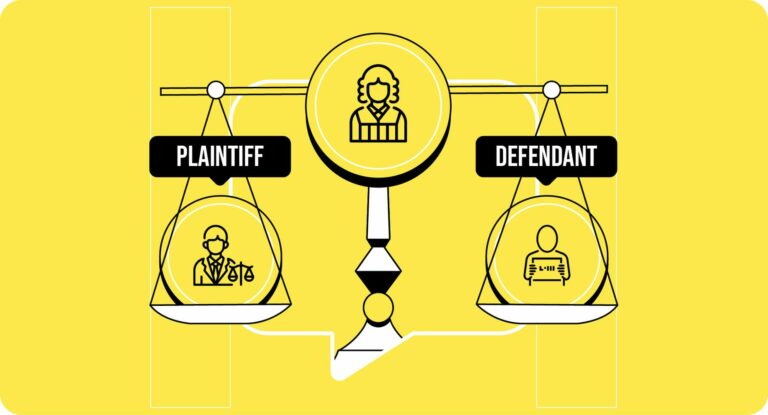In the aftermath of a car accident, the initial shock and adrenaline can mask the true extent of any injuries sustained. While some pains might appear immediately, others take time, even months, to manifest. One such issue is the lingering shoulder pain that can be easily overlooked amidst more evident injuries.
Over time, what might start as a minor discomfort can evolve into a chronic problem, severely impacting an individual’s quality of life. It’s crucial, therefore, to understand the potential causes of this delayed pain, its implications, and the importance of seeking timely medical and legal advice.
In the coming sections, we’ll delve deeper into the intricacies of such injuries, exploring their origins, long-term consequences, and the steps one should take to address them.
Common Causes of Shoulder Pain After a Car Accident
Car accidents, regardless of their severity, can put immense stress on the human body. The shoulder, being a complex joint with a wide range of motion, is particularly susceptible to injuries during these traumatic events. Here are some of the primary reasons individuals experience shoulder pain following a collision:
- Whiplash and Its Effects on the Shoulder: Typically associated with neck pain, whiplash is a rapid forward and backward motion of the head, often resulting from rear-end collisions. However, the force exerted during whiplash can also affect the shoulders, particularly the muscles and tendons around the neck and upper back, leading to pain and discomfort.
- Direct Trauma from Impact: A direct blow to the shoulder during an accident, either from hitting the door, dashboard, or any other hard surface, can cause bruising, fractures, or dislocations. These injuries may not always be immediately noticeable but can become progressively painful.
- Seat Belt Injuries: While seatbelts are life-saving devices, the force exerted by them during a collision can sometimes lead to shoulder injuries. The pressure point where the seatbelt crosses the chest and over the shoulder can experience stress, leading to strains, bruises, or even tears in extreme cases.
While these are some of the common causes, it’s essential to recognize that every individual and accident is unique. A seemingly minor incident can sometimes result in significant pain due to factors like the individual’s position during the crash, the angle of impact, and pre-existing health conditions. The next section will delve into why, in some cases, this pain persists long after the accident, highlighting the importance of vigilance and timely intervention.
Why Pain Can Linger for Six Months or More
The human body is remarkably resilient, often healing from injuries in a matter of weeks. Yet, there are times when certain pains, such as shoulder discomfort stemming from a car accident, persist for extended periods. Understanding the reasons behind such prolonged pain is crucial, not just for treatment but also for one’s overall well-being.
Unlike bone fractures that show clear signs on X-rays, soft tissue injuries—encompassing damage to muscles, tendons, and ligaments—can be elusive. They might not manifest immediately after an accident due to inflammation masking the true extent of the damage. As inflammation subsides, the pain becomes more apparent and, without proper treatment, can linger. Sometimes, the initial medical assessment post-accident might miss certain injuries, especially if they don’t show overt symptoms. Over time, these undiagnosed problems can compound, leading to chronic pain or complications. For instance, a minor shoulder tear might worsen with daily activities if left untreated.
Psychological factors can also contribute heavily to chronic pain. It’s well-documented that one’s mental and emotional well-being plays a role in pain perception. Individuals who experience traumatic accidents can develop anxiety, depression, or even post-traumatic stress disorder (PTSD). These psychological stressors can exacerbate the physical pain, making it more persistent and harder to treat.
It’s evident that multiple factors can contribute to the persistence of shoulder pain post-accident. Recognizing these issues and seeking a comprehensive medical evaluation becomes paramount. It ensures that individuals don’t just treat the pain, but also address its root cause, setting them on a path to complete recovery.
The Importance of Medical Assessment and Follow-Up
Once the dust settles after a car accident, relief often sets in, especially if there aren’t any immediate signs of severe injuries. However, the absence of pain right after an accident doesn’t necessarily indicate the absence of injury. Here’s why ongoing medical assessments and follow-ups are critical, particularly when addressing shoulder pain:
- Detecting Hidden Injuries: As discussed, soft tissue injuries might not present themselves immediately. Regular medical assessments ensure that these injuries are caught early, preventing them from becoming more severe or chronic issues. MRI and ultrasound, for example, can offer more detailed insights into soft tissue health than traditional X-rays.
- Preventing Long-Term Complications: A small untreated injury can snowball into a major health concern if left unchecked. Regular follow-ups provide medical professionals an opportunity to track the progress of healing and recommend interventions or therapies if the recovery isn’t proceeding as expected.
- The Role of Physical Therapy and Rehabilitation: In many cases, physical therapy becomes a cornerstone of recovery after shoulder injuries. Therapists can offer exercises and treatments tailored to individual needs, ensuring faster recovery and preventing potential complications. Moreover, therapy sessions can provide guidance on how to avoid straining the injured area during daily activities.
It’s clear that medical intervention isn’t just a one-time process after an accident. Continuous engagement with healthcare professionals is the key to ensuring a thorough and swift recovery. It’s not just about addressing the pain but ensuring that the body regains its full functionality and strength. For those who’ve experienced shoulder pain six months after a car accident, this process is even more crucial, given the prolonged nature of their symptoms.
Legal Implications of Delayed Pain
In the complex landscape of post-accident recovery, medical concerns are just one facet. There’s also a critical legal dimension to consider, especially when symptoms like shoulder pain emerge long after the event. Understanding the legal implications of such delayed pain can be vital for safeguarding one’s rights and ensuring adequate compensation for sustained injuries.
When an individual experiences pain or discomfort that manifests months after an accident, it can sometimes be challenging to attribute it directly to the event in the eyes of the law. Documentation becomes paramount. Every medical visit, symptom noted, and therapy session should be meticulously recorded. These records not only serve as a testament to the sustained injury but also help build a robust case if there’s a need to seek compensation or coverage for medical bills.
Another noteworthy aspect is the potential impact of delayed pain on insurance claims and settlements. Insurers might be skeptical of injuries reported long after an accident, deeming them unrelated or pre-existing. This skepticism underscores the importance of having a seasoned legal team, like the Crockett Law Group, that understands the intricacies of such scenarios and can advocate effectively on behalf of the injured party.
Additionally, there are statute of limitations considerations. In many jurisdictions, there’s a time limit within which personal injury claims can be filed following an accident. If shoulder pain or any other injury surfaces late and one isn’t proactive, the window for filing a claim might close, leaving the injured party without recourse.
Tips to Cope with Shoulder Pain
Dealing with shoulder pain, especially when it lingers for months after a traumatic event like a car accident, can be mentally and physically taxing. It disrupts daily routines, hinders work, and diminishes overall quality of life. While medical advice is paramount, there are several strategies one can employ to cope with this discomfort and accelerate the healing process. Physical therapy stands out as one of the most effective measures for addressing post-accident shoulder pain. A trained therapist can assess the specific nature of the injury and recommend a range of exercises designed to restore mobility, strength, and flexibility. Over time, as the shoulder begins to heal, these exercises can be adapted to match the patient’s progress, ensuring that recovery is consistent and tailored to individual needs.
Over-the-counter pain relievers, when used responsibly and under the guidance of a healthcare professional, can offer temporary relief from shoulder pain. Nonsteroidal anti-inflammatory drugs (NSAIDs) like ibuprofen can help reduce inflammation, which often exacerbates pain. However, it’s crucial to be cautious and not over-rely on these medications, as they can have side effects with prolonged use.
Alternative therapies have gained traction in recent years as effective remedies for chronic pain. Acupuncture, for instance, involves the insertion of fine needles into specific points on the body, believed to stimulate the body’s natural painkillers. Similarly, massage therapy can help relax tightened muscles around the shoulder, alleviate pain, and promote blood flow, aiding the healing process.
Lastly, seeking consultation with specialists, such as orthopedic surgeons or rheumatologists, can provide deeper insights into the nature of the injury and potential treatments. These specialists can offer advanced diagnostic tools, therapeutic techniques, and in some cases, surgical interventions if deemed necessary.
In essence, addressing shoulder pain after a car accident requires a multi-faceted approach. It’s about combining professional medical advice with personal resilience, understanding, and patience. Taking proactive steps, seeking regular advice, and being patient with the healing process are all integral to achieving a full recovery.
For those navigating this challenging path, remember you’re not alone. Professionals, both in the medical and legal realms, can provide invaluable support. Crockett Law Group, for instance, specializes in assisting individuals through such scenarios, ensuring that their legal rights are upheld. If you or someone you know is experiencing shoulder pain six months after a car accident, don’t hesitate to reach out and seek guidance.
Remember, early intervention can make all the difference in your journey to recovery. And if ever in doubt, consider giving Crockett Law Group a call at (800) 900-9393. They’re here to help.










